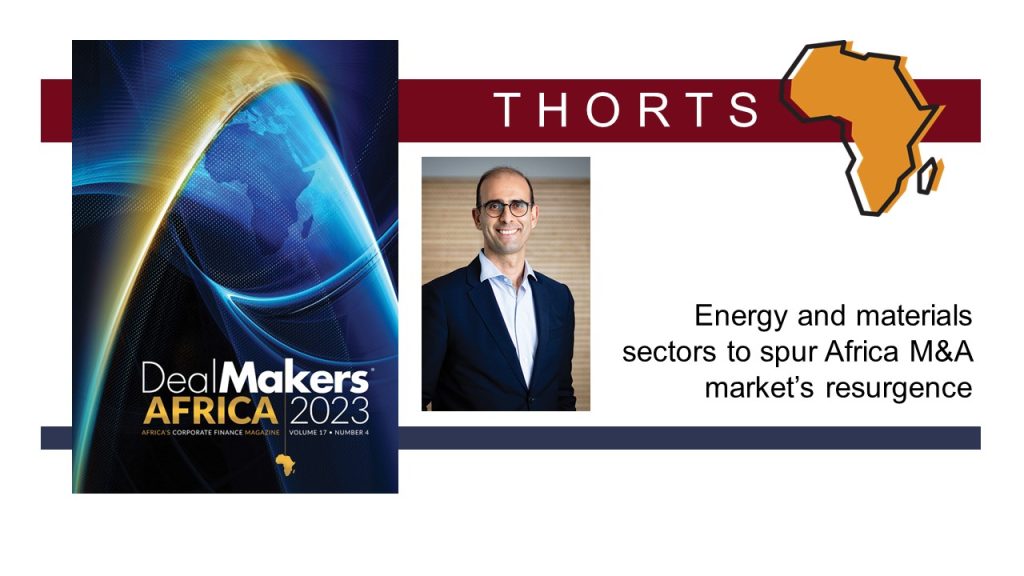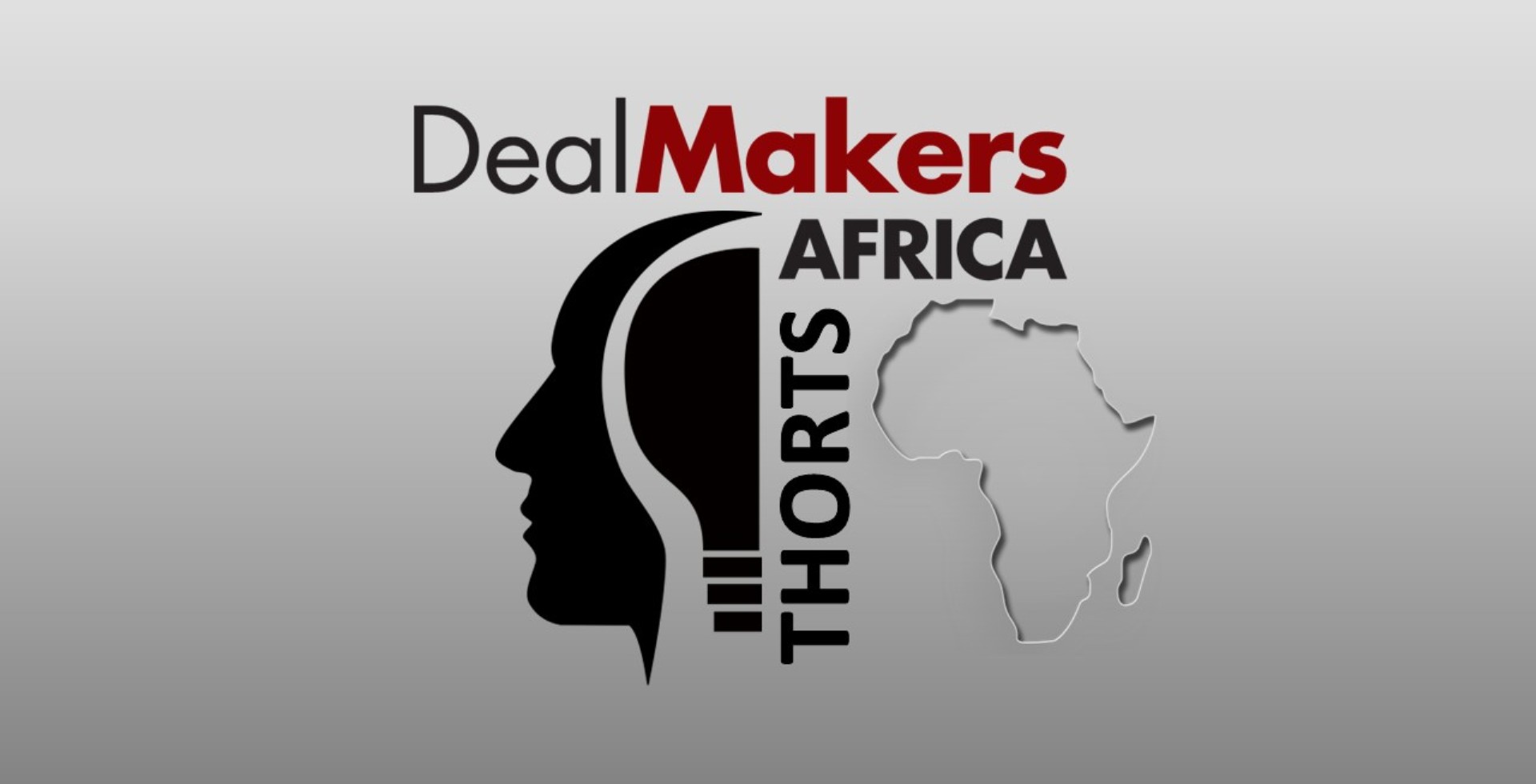Africa’s M&A market has experienced significant turbulence amid post-pandemic economic and geopolitical uncertainty. The renewable energy and material sectors have been bright spots, however, and seem poised to lead the market’s recovery.
The market’s downturn can be traced to the second half of 2022, when the region’s total deal value fell to US$6 billion — a sharp 62% decline compared to the first half of the year. For context, the market surged to an all-time high in 2021 – with deal values exceeding $44 billion – signalling that dealmakers were playing catchup after the initial shock of the COVID-19 pandemic had passed. The merger of the Angolan oil and gas businesses of BP and Eni contributed to this dealmaking peak.
The post-pandemic surge was followed by a reversion to more normal levels of M&A activity. Deal value in the first half of 2023 was $4 billion — a 73% drop from the first half of 2022, versus a 45% decline globally. However, the steep year-on-year decline masks the emergence of an active M&A market over the past decade, which should promote continued strength.
Several sectors in Africa have bucked the recent downward trend:
• Renewable Energy. Seeking greener and more secure energy sources, investors turned their attention to Africa’s renewable energy sector. An example is the pending acquisition of BTE Renewables for more than $1 billion by a consortium formed by Meridiam and Engie. In 2022, the renewable energy sector attracted a record-breaking $118 billion in foreign direct investment (FDI), representing more than 60% of total FDI inflows to Africa. The leading investors in the sector are the UAE and India, followed by the UK and France.
• Materials. Rising concerns over access to raw materials have spurred M&A in Africa’s materials sector over the past two years. So far, the largest deals in 2023 have occurred in the materials sector. China Natural Resources has agreed to acquire Williams Minerals, a Zimbabwe-based lithium mine operator, for almost $600 million. Lilium Mining acquired a 90% stake in the non-core gold mines of Endeavour Mining in Burkina Faso for $300 million.
• Health Care. The pandemic underscored the need for African countries to develop the skills and capacity to independently address the health challenges of their growing populations. This realisation has attracted investors to the health care sector. A standout example is Manta Bidco’s acquisition of Mediclinic International for $2.5 billion.
• Technology. The emergence of a technology ecosystem in Africa is a catalyst for transactions and fundraising in many countries. Among others, Kenya – where tech deal value spiked in 2022 – is very active in technology-driven transactions.
In 2022 and the first half of 2023, the most active countries in the region, in terms of M&A volume and value, were South Africa and Egypt, followed by Nigeria and Kenya.
Looking ahead, we see a mix of challenges and opportunities. Persistent global instability may dampen investors’ enthusiasm, leading to heightened risk aversion, especially toward investment opportunities in a continent with an extremely complex business landscape. An emerging movement toward increased protectionism among African countries could impede international investment flows to certain markets; conversely, however, it might spur transactions among African entities. The growing number of African-led acquisitions and the rise of Africa-focused sovereign funds, private equity investors and family offices underscore the potential for more locally generated M&A activity. At the same time, global players from China, India and the Middle East are steadily expanding their presence in Africa.
Several other trends and considerations are noteworthy:
• Energy Transition and Infrastructure. Prominent investors may begin consolidating market shares and leveraging their regional platforms to expand their reach into the developing continent. Governments and investors recognise the need to close notable gaps in the infrastructure and energy sectors. As a result, we expect to see substantial investments in electrical grids, natural gas, renewables and green hydrogen, among other areas.
• ESG. As in other regions, environmental, social and governance (ESG) factors have become key considerations in African M&A transactions in recent years. We expect this trend to persist in the long run, despite recent scepticism from some global investors about the impact of ESG constraints on companies.
• Sourcing. Supply chain considerations will promote M&A investments as companies’ sourcing strategies emphasise proximity and security. Thanks to its abundant natural resources and young population, Africa is well positioned to serve as a sourcing hub for neighbouring markets. Notably, the presence of good infrastructure, attractive locations and favourable legal frameworks in Morocco, South Africa and Egypt give those nations an edge over other African countries. Consolidation among logistics players to better serve African hinterlands, known as “corridor integration”, will also lead to new deals.
• Capital Availability. Around the world, private equity firms and family offices are flush with cash available for deployment. As the right opportunities emerge, the accumulated dry powder of financial sponsors, including African investors, will boost M&A activity. Although investors’ risk aversion has depressed valuations, we may see a tipping point at which low valuations entice a flood of capital. If that occurs, however, the capital influx may predominantly benefit regional players over multinational companies operating in Africa, as some of the latter are reducing their regional investment and exposure.
Against this backdrop, the energy and materials sectors, along with the broader industrial sector, will likely maintain their momentum and spur the M&A market’s resurgence. Some companies in these sectors have robust balance sheets and available cash, and they also stand to benefit from higher commodity prices. Their strong positions might lead them to recalibrate their diversification strategies in search of growth opportunities. Major industry players are likely to explore consolidating their market positions by leveraging regional platforms to expand their African presence.
Seddik El Fihri is Managing Director and Partner | Boston Consulting Group, Casablanca

This article first appeared in DealMakers AFRICA, the continent’s quarterly M&A publication.
DealMakers AFRICA is a quarterly M&A publication
www.dealmakersafrica.com



